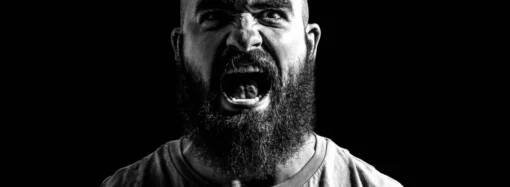It’s a Catch-22 of many people with COVID-19 vaccine adverse reactions: While tasked with monitoring adverse reactions to the vaccine, health officials also often disregard or downplay those reactions.
Vax survivor Laura B., of Rochester, Minnesota, feels stuck in that netherworld—injured by the vaccine, yet healthcare providers won’t recognize that her symptoms likely came from getting two shots of the Pfizer vaccine. After the first jab on Jan. 27, 2021, she immediately had a severe headache, which lasted intermittently for months. After she got the second shot on Feb. 17, 2021, more reactions came within a few minutes of the shot.
“I couldn’t feel my legs,” Laura said. “I was being monitored by a paramedic who dismissed it.… I could stand and walk, but not feel my legs.”
Healthcare providers assured her she was fine and sent her on her way. She had no idea that the medical team had entirely ignored her symptoms.
“I learned six months ago that none of my adverse reactions were documented in my medical record by the paramedic,” Laura said.
Three days after Laura’s second jab, she awoke with painful sores in her mouth. The condition persists to this day, making it difficult for her to eat. She’s lost 30 pounds.
A longtime market researcher for the medical industry—an industry where the federal government mandates workers to be vaccinated against COVID-19—Laura has been lucky to be able to continue working. But she’s appalled by a medical industry that dismisses the many adverse reactions people are having from the vaccine.
“It’s an abject failure,” she said. “One of the crucial things here is the lack of documentation, follow-up, and the clues it could provide.”
Laura has been diagnosed with small neuropathy and is in the early stages of large fiber neuropathy. Fortunately she has supportive friends and relatives who’ve been helpful. But the lack of help from the industry she’s worked in for years is hurtful.
Laura’s other adverse reaction symptoms include dizziness, fatigue, and heart arrythmia. The neuropathy in her legs is worsening, too.
She was very active before getting the jab, going to the gym daily, hiking, biking, and traveling. But now she has little sense of balance.
To add insult to injury, Laura has had her symptoms repeatedly ignored by medical professionals, and some have even claimed her symptoms are depression induced.
This phenomenon is common with vax-injured women, many of whom have said doctors have suggested their adverse reactions—including disrupted menstrual cycles—are caused by menopause. For Laura, the illness also has been trying to her faith.
“I wrangle with God, because of the moral and ethical failure of the healthcare system,” Laura said. The pain and sadness is overwhelming to her. And what’s most maddening to her is that the system was supposed to work in the interests of patients.
“There was a policy in place that said if employees have a [vaccine] reaction, we’ll care for them.… But employers, health care providers, and insurers have competing priorities,” Laura said.
She believes there’s a lack of accountability for adverse reactions to the vaccines on the part of the government, the pharmaceutical industry, employers, and the medical community. “They need to be held accountable,” she said.
“Who’s watching out for people? Nobody. I complied with their rules believing the safeguards in the policy would be upheld,” she said.
But without the vaccine-injured being studied, answers to their ailments seem impossible to discover. While Americans were forced across the board to get the COVID-19 vaccine, those who’ve been injured from it are being marginalized.
“I’ve always been healthy, now my heart is being monitored,” Laura said. “The vaccine-injured are untapped walking bodies of data that, if studied, could unleash all sorts of cures.”
The pain from her ailments is unbearable, but Laura has only been prescribed anti-depressants and neuromodulators to deal with it. The inability—or unwillingness—of medical professionals and government officials to recognize the systemic nature of vaccine injuries feels like a choice to her.
“If you can quickly develop a vaccine, you can find solutions to help people injured by that vaccine,” she said.
—
Image credit: Laura B.
6 comments















6 Comments
ed
November 4, 2022, 11:38 pmfull blown covid, done in Apr ’20. 68 yrs old. started walkng a few mikes a day, got back in shape and felt good, and was feeling progressively better. pfizer vax Feb 4 ’21, floored me immediately. listless, exhausted. 2nd vax at end of Feb not as severe as first shot, but bad.
my gains were erased and and I remain about the same. I have refused any vaxes of any kind since.
REPLYRonald B Thomas
November 5, 2022, 2:31 amThis is a very important article. Today my GP offered me a new booster. I told him I did not want it as my trust in the whole program was shot. He put the hard sell on me to get it, but he could never explain how the booster would provide something that the original vaccines did not. He said it was "too new." Does anyone have an opinion on the new booster? The usual suspects are touting it to the skies, but who really believes them any more? I am not against it absolutely, but I have had three shots already. I don’t understand the whole thing, so I am gathering opinions. Happy to hear any view.
REPLYCindy
November 5, 2022, 3:42 amGood
REPLYRudy
November 5, 2022, 12:05 pmCan’t IT do something about these Trolls who post their juvenile ads for working at home!? Can’t they be blocked? They are doing this to receive a "bounty: when people take the bait and sign up.
REPLYLorri
November 10, 2022, 11:10 pmThis is such a powerful testimony and confirms much of what has been previously reported by non medical industry workers. The health care industry is not paying attention to vaccine safety. Laura, thank you for sharing your unique and powerful story. Jonathon, you capture the voices of the injured perfectly. Thank you for your commitment to their telling.
REPLY